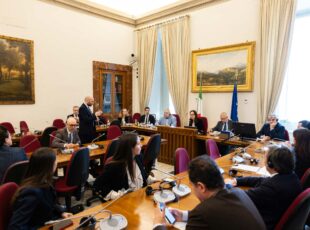CNN: On the eighth anniversary of my father’s arrest, reason for optimism in Russia
 By Pavel Khodorkovsky – Special to CNN
By Pavel Khodorkovsky – Special to CNN
It’s been eight years since Vladimir Putin’s thugs forcibly removed my father, Mikhail, from a plane and took him to prison.
The last time I saw him was a few weeks before his arrest, when he was visiting me at college in Boston. There were already concerns about his safety in Russia; his business partner, Platon Lebedev, had been locked up earlier that summer. And despite the urging of American friends and colleagues to stay here, my father remained firm and returned home.
In the intervening eight years, after enduring two show trials and countless other indignities – all while the international community’s condemnation of his imprisonment fell on deaf ears within the corrupt Russian regime – my father has not given up hope.
Even as the term of his first sentence ended two weeks ago – and, therefore, by all accounts, he should be set free – he remains optimistic.
He is encouraged that in the last few months, the chorus of those who denounce his imprisonment has grown louder. In May Amnesty International declared him a prisoner of conscience. Then the European Court of Human Rights ruled that he was not afforded fair hearings and had been subjected to degrading conditions in court and in prison. This fall the International Bar Association concluded that his second trial was unfair, based on “mistake-ridden and self-contradictory” charges that were at odds with the Russian criminal code.
More and more of late my father has become a leading voice for those who believe that Russia can and will disavow its lawlessness and establish a modern democracy, where property rights and civil rights are honored and people don’t live in fear of a corrupt bureaucracy.
This principled stand, while not radical by any means to the Western world, makes my father a dissident in Russia. But he has embraced that role, providing energy and ideas for a nascent political opposition, writing as often as he can in Russian and international publications, often filing stories and filling interview requests through the prison mail system.
In a country where it is easy to lose faith about the future, he counsels a new generation – my generation – to stop waiting for a modern democracy to be established from above. “The main thing is to act,” he wrote in Vedomosti last month. “Unite and fight to protect your civil rights […] inasmuch as this action, this experience – however minimal – is still a result [through which] you can achieve the birth of modern social institutions.”
“You can create the ruling class of the next Russia in this way,” he added.
The generation coming of age has ambitions to live better, build new businesses and advance their careers without paying a single ruble in bribes. They believe that change will come – in months or years and not decades – regardless of Putin’s return to power because most of Russian society wants to move forward.
Back in the U.S., I remain hopeful that Americans who care about human rights and the rule of law can spur on my countrymen in Moscow and St. Petersburg, who take notice when demonstrations are held in New York and Washington, as they were last month, demanding that U.S. political leaders take concrete actions in support of the victims of Russian human rights violators. They are encouraged by legislation proposed by Senator Ben Cardin that would restrict visas and banking access for those with a history of corruption and who want to spend their time and park their money in the U.S.
“Millions of eyes in Russia and throughout the world are watching,” my father said last December at the end of his second trial. “They are watching in the hope that Russia will become a country of freedom and the law […] where the power will truly be dependent on the citizens.”
“Here and now,” he concluded, “the fate of every citizen of our country is being decided.”
Buoyed by Western advocacy, by my father’s words and by a feeling sweeping the globe that people no longer have to live under authoritarian rule, my countrymen will achieve their goal of creating a free society. I hope my father will be able to see that firsthand – and not just read about the movement he helped build from behind a prison wall.



